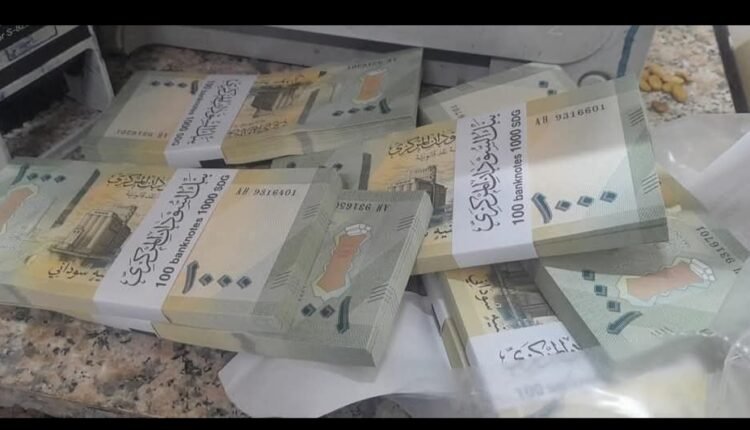Economists to “Sudanhorizon”: The Decline of the Sudanese Pound Requires Structural Reforms, Not Temporary Fixes

Sudanhorizon – Hala Hamza
The Sudanese pound has seen a sharp decline in value, with exchange rates in the parallel market reaching 3,600 pounds per U.S. dollar in some cases, driven largely by speculation.
Economists and financial analysts speaking to Sudanhorizon called for strict and balanced monetary policies to stabilize the national currency, strengthen bank capital, and curb manipulation of export proceeds and currency trading. They proposed several structural measures to restore stability.
The former General Manager of the Sudanese French Bank, Dr. Othman Al-Toum, stressed the need to reduce demand for the U.S. dollar as a prerequisite for stabilizing the pound, emphasizing that this requires coordinated efforts from multiple institutions.
He warned that the continuation of the war would delay the implementation of essential reforms.
Dr. Al-Toum called for a sustainable increase in state revenues, strict spending control, and rationalization of expenditures to reduce fiscal deficits and the government’s dependence on central bank borrowing, which would in turn limit currency printing.
He also urged greater investment in productive sectors to raise revenues, restrict imports, and lower demand for foreign currency — all key steps to stabilizing the exchange rate.
He highlighted the importance of expanding electronic payment systems for all government transactions to reduce cash circulation, printing costs, and revenue leakage, while improving transparency.
Al-Toum further called for creating an investment-friendly environment to attract foreign capital and boost export earnings, along with reviewing monetary policies to control inflation and stabilize the economy.
He emphasized strengthening trade and investment ties with partner nations, which would increase employment, improve supply, and reduce import dependency.
Meanwhile, Dr. Saleh Jibril, former Director of the Family Bank, told Sudanhorizon that exchange rate stability depends on adequate foreign currency reserves at the Central Bank, derived mainly from exports of agricultural, livestock, and mineral products.
He stressed the importance of maintaining a positive balance of payments by curbing imports to essentials and minimizing luxury goods.
Dr. Jibril also urged focus on industrialization and halting raw exports in favor of value-added manufacturing, especially regarding livestock exports and crops such as peanuts, sesame, and hibiscus. He warned that current practices harm the national economy and weaken the pound.
He called for rigorous monetary policies, better coordination among financial institutions, and strengthening of bank capital and foreign exchange departments.
He also urged restructuring the banking sector, merging or liquidating unprofitable banks that burden the economy, and encouraging foreign banks — particularly from China and Russia — to open branches in Sudan and trade in yuan and ruble instead of dollars.
Economist Dr. Haitham Mohamed Fathi pointed out that Sudanese expatriate remittances have been a vital and sustainable source of foreign currency throughout the war, calling them the “unsung hero” in preserving the purchasing power of the pound.
He explained that relative stability in exchange rates within secure regions reflects basic economic dynamics — specifically, how changes in the money supply affect inflation and, in turn, the exchange rate.
Dr. Fathi warned that the currency depreciation severely affects employees and workers by reducing their real incomes and pushing many into poverty, while also threatening the financial soundness of banks, as the value of their assets and loans declines.
He added that foreign-denominated loans become far costlier in local terms, complicating debt repayment and eroding both public and private wealth.
He also noted that financing budget deficits through excessive money printing leads to inflation and further currency devaluation.
Dr. Fathi urged the Central Bank to accumulate foreign reserves or gold holdings, as these are the foundation of a strong national currency.
He underscored the urgent need for economic restructuring, revitalization of production capacity, and incentives for domestic and foreign investment — all tied to achieving lasting political and economic stability.
Shortlink: https://sudanhorizon.com/?p=7983

